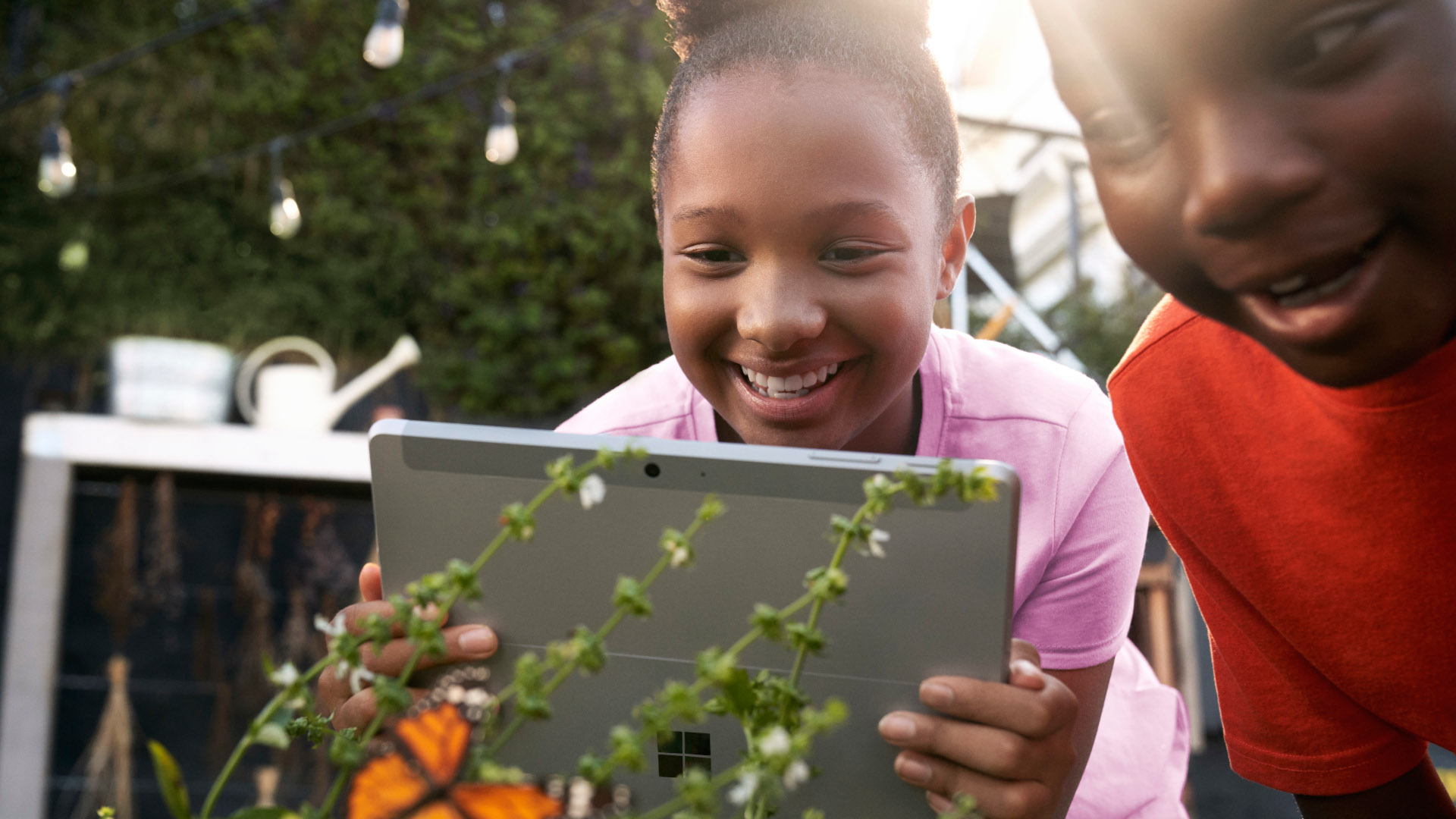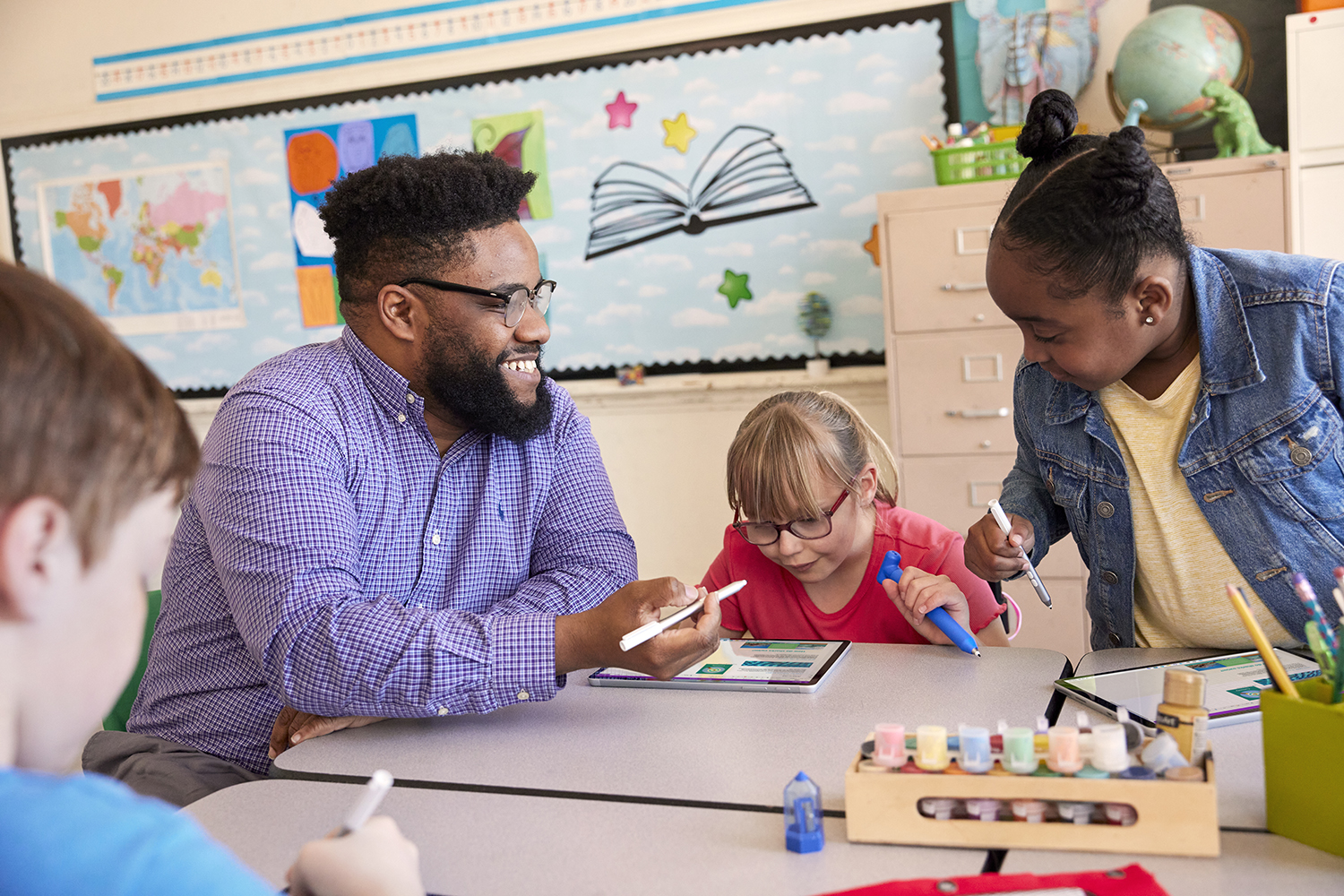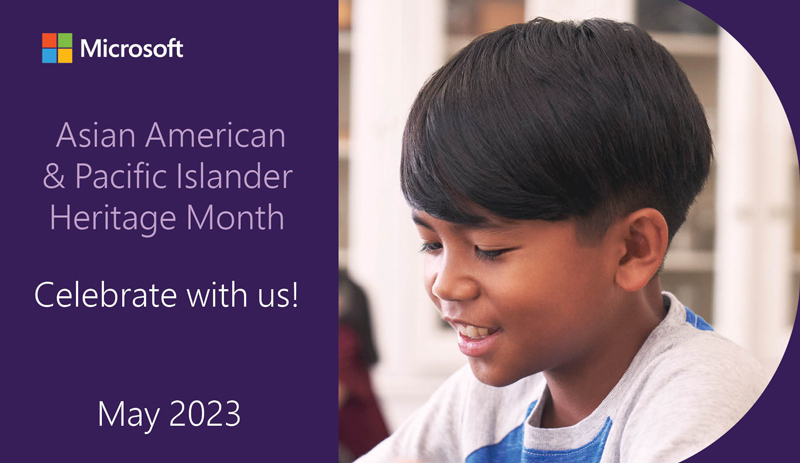Today’s students will become the citizens, advocates, and leaders of tomorrow, and educators have the opportunity to shape the future every day. This February, educators across the country will celebrate and honor the experiences of Black and African American people and their central role in US history. The observance is an opportunity for educators to prioritize anti-racism both in their curricula and classroom environments—throughout Black History Month and beyond.
To help educators have anti-racism conversations with their students, Microsoft has partnered with experts across the subject. “The more we normalize discussions about racism, and the more voices and narratives we bring into the classroom, the better,” said Ken Shelton, a Microsoft Innovative Educator Expert and educational strategist who contributed to several new resources for educators.
Today, we are releasing the new “Anti-racism journey for educators with students”—in addition to a wide variety of other free resources to help explore and learn more about how to bring these conversations into the classroom. While these resources are being released during Black History Month, they can help keep this discussion front and center year-round.
Anti-racism journey for educators with students
The newly released “Anti-racism journey for educators with students” is a kit of resources, grounded in social and emotional learning and curated by experts in the field of equity and inclusion, restorative practices, and education technology, that empowers educators to build the knowledge and capability needed to support equity and anti-racism work with students. It’s a first step toward establishing inclusive, caring classrooms where teachers can create equitable environments and bring social justice topics into the classroom. After completing the courses, educators will have access to resources that help students on their own learning journeys.
Microsoft Store virtual field trips
Microsoft Store offers a variety of free virtual experiences for students to celebrate and honor Black history. These field trips offer immersive and interactive experiences for every grade level, interest, and subject matter, including:
- Museum tour of the George Washington Carver Museum: Students will learn about the life and inventions of George Washington Carver, the most prominent Black scientist of the early 20th century.
- Book reading of “Juneteenth for Mazie” by Floyd Cooper: In this virtual book reading, students will learn about Juneteenth through the eyes of Mazie. As she discovers her family’s history, she learns about her great-great-great-grandfather’s freedom from slavery.
- Museum experience of the Negro Leagues Baseball Museum: This museum is dedicated to preserving the history of Negro League Baseball in the US—professional teams formed because Black and African American people were not accepted into the major and minor baseball leagues until the 1940s.
Flipgrid virtual events
With Flipgrid’s virtual field trips, students can learn about race, equity, and justice from renowned authors. A few of the virtual field trips available include:
- Celebrate World Read Aloud Day with Vashti Harrison: Vashti Harrison’s groundbreaking children’s book, “Little Leaders: Bold Women in Black History,” has inspired young readers to celebrate the leaders in their own communities.
- Learn how to be an anti-racist accomplice with Frederick Joseph: Students can learn how to be anti-racist with New York Times bestselling author and activist Frederick Joseph.
Minecraft: Education Edition (M:EE) lessons
Through Minecraft’s free lessons, students can investigate ideas behind identity, understand important moments in Civil Rights history, and learn how Black Lives Matter is continuing the work of racial justice today. Each lesson comes with additional resources for educators to accompany the lesson and foster discussion.
- Who is Dr. Martin Luther King, Jr.?: In this lesson, students will work together to create museum galleries depicting the different identities of Dr. King. They will learn about the social, intrapersonal, and interpersonal influences that shape how we understand Dr. King today.
- The “I” in Identity: This lesson helps students understand their own identities, examining who they are, what shapes them, and how others may view them. Identifying the social and cultural factors that help shape identities is an important step for students in understanding the complexities that make us unique.
- Good Trouble: US Civil Rights: Students can learn how Civil Rights activists challenged norms, policies, and legislation to create change in society. This lesson helps students develop a better understanding of how to make meaningful choices and influence positive changes when they see injustices today.
- Good Trouble: Black Lives Matter: In this lesson, students will join the activists on Black Lives Matter Plaza in Washington, D.C. as they stand together as catalysts for Good Trouble, seeking racial justice for the Black community.
These professional development, classroom, and virtual resources are some of the many ways to help students learn about social justice and anti-racism action. Let this Black History Month be just the start of continued learning and conversation for everyone.




